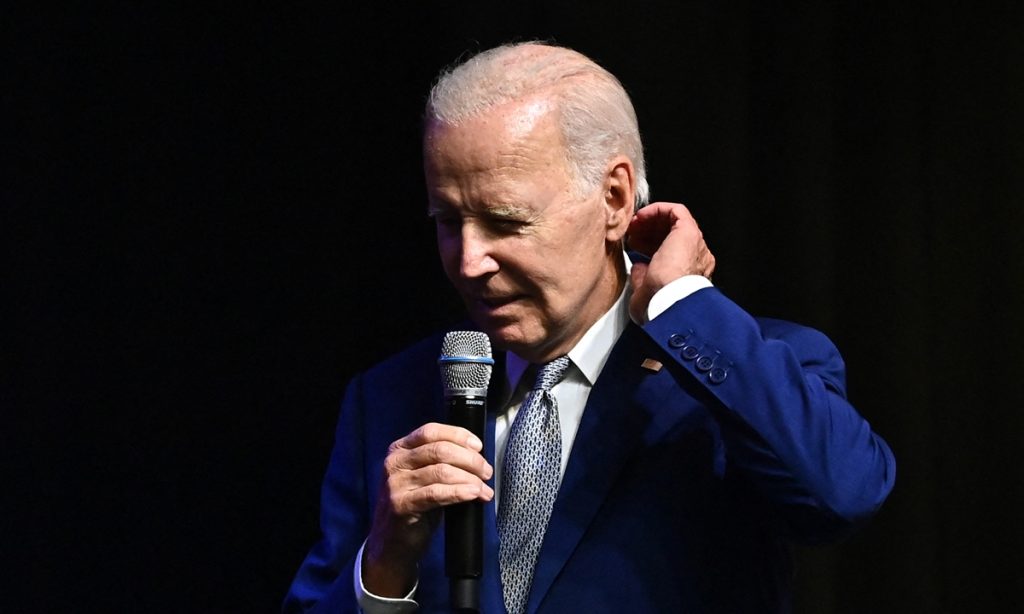Western media has ‘warned’ Vietnam on the pros and cons of Biden’s visit: Global Times editorial

The just concluded G20 Summit in New Delhi, marked by significant disagreements and low expectations, ultimately reached a joint declaration, reflecting the international community's shared desire for unity and cooperation in overcoming challenges, as well as setting aside some significant differences. However, US President Joe Biden's subsequent itinerary after leaving New Delhi has brought people back to the more complex and rough reality of international politics.
On Sunday, Biden arrived in Hanoi, Vietnam, beginning a short visit there, which has been buzzing news for some time and has attracted much attention. Since the normalization of US-Vietnam relations in 1995, every US president in office has visited Vietnam, which can be seen as a form of Washington's attention to Vietnam. However, never before has Washington's exploitation of Vietnam and lack of respect for Vietnam been so thoroughly exposed. Paying attention cannot be equated with paying respect. Attaching significance with ulterior motives is instrumentalizing the targeted country, which fundamentally disrespects the principle of equal and mutually beneficial relations. It is the Western media itself that pierced through this thin veil.
From the moment the news was released that Biden would be visiting Vietnam, numerous Western media outlets have been making noises for over half a month. However, all the reports and commentaries are "all the same." Some media outlets have explicitly stated in their headlines that "Biden heads to Vietnam in latest push to counter China." This is an unusual phenomenon in the clamorous Western public opinion arena, but it reveals the less glamorous truth about Biden's visit to Vietnam. This message brought about by Western public opinion unintentionally serves as a strong and lasting reminder to Vietnam.
First, Biden did not go to Vietnam for the sake of Vietnam. As Radio France Internationale put it, his diplomatic activities in Asia all revolve around one central theme - confronting the world's second-largest economy. Ultimately, it is still a matter of geopolitical maneuvering, treating Vietnam as a battleground for major powers. Washington's positioning of Vietnam is clear, as stated by Kurt Campbell, White House coordinator for Indo-Pacific affairs, that Vietnam is a "swing state." In other words, in their view, Vietnam has more "instrumental value" for the US in countering China.
Second, what Biden wants to peddle to Vietnam is neither what Vietnam wants nor is it in line with Vietnam's national interests. As a scholar in the US said, "Washington was more keen to risk upsetting Beijing than Hanoi was." In other words, the US and Western media have been discussing it for so long, but no one has said anything about the actual benefits that Biden's visit will bring to Vietnam. To some extent, it is like a clever housewife who can't cook without rice.
American and Western public opinion and Washington do not care about Vietnam's national interests. What they really care about is how to get Vietnam to "fall into the arms of the US." The title of an article in the Diplomat magazine is "Vietnam's Time to Choose." Even though American public opinion and Washington clearly know that Vietnam, like other Southeast Asian countries, is unwilling and has been trying its best to avoid choosing sides between China and the US, they still continue to push, pressure, induce and even coerce in this direction. This is the diplomatic practice of the US to coerce other independent and sovereign countries.
One of the biggest points of concerns of Biden's visit is whether the US-Vietnam relationship will be upgraded to a "comprehensive strategic partnership." According to the US media, this will give Washington an equal place with Beijing and Moscow in Hanoi's diplomatic relations. American public opinion generally believes that this will arouse China's vigilance. If the US doesn't have ulterior motives, why should it worry about China being unhappy or angry when the US develops bilateral relations with Vietnam? China doesn't interfere in other countries' diplomacy, and is happy to see other countries live in harmony and engage in mutually beneficial cooperation. However, if it conducts activities against China, it's impossible for China to sit still.
Not long ago, when General Secretary of the Communist Party of Vietnam Central Committee Nguyen Phu Trong met with Liu Jianchao, Minister of the International Department of the Communist Party of China Central Committee, Trong said Vietnam views its relationship with China as a matter of top priority. It is understandable that Vietnam hopes to maintain a balance in its relations with China and the US, the two major powers. But what the US is doing now is tantamount to pulling the balance pole away from Vietnam, or blowing headwinds that will make Vietnam unable to maintain its balance. This indeed requires Vietnam to be particularly mindful.
We also notice that, according to local media reports, Vietnam asked the US to refrain from the use or threats of force and actions that go against international law which further complicate the situation, resolve disputes peacefully. This indicates that Hanoi is not willing to pull chestnut out of fire for Washington. It also shows that regional countries are well aware of the dangers posed by Washington and are vigilant.